If you’re a dog owner, you’ve probably wondered whether or not it’s safe to share some of your favorite human foods with your furry friend. One such food that often comes up in this discussion is grits. But can dogs eat grits? The answer is not a simple yes or no. There are several factors to consider before sharing grits with your dog. In this article, we’ll explore the nutritional value of grits, the potential benefits and risks of feeding them to your dog, and provide some guidelines for safely sharing grits with your pet. By the end of this comprehensive guide, you’ll have a better understanding of whether or not grits are a safe and healthy food choice for your furry friend.
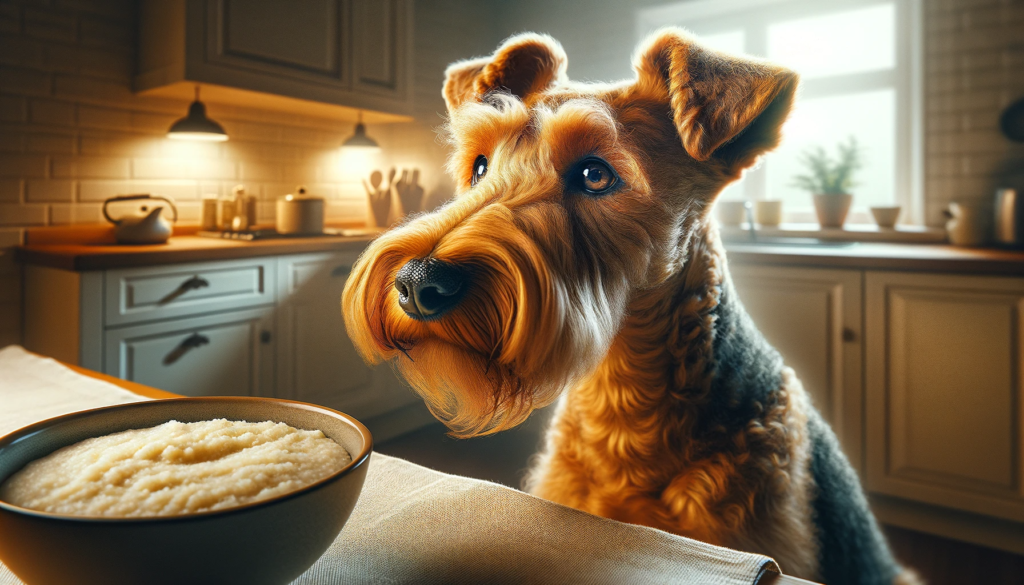
What Are Grits?
Grits are a popular Southern food made from ground corn kernels. They’re often served as a breakfast dish and can be prepared in a variety of ways, including boiled, baked, fried, or mixed with cheese or other ingredients. Grits are a good source of carbohydrates and fiber, and they also contain some vitamins and minerals, including iron and thiamin. While grits can be tasty and nutritious human food, you may be wondering if they’re safe for your dog to eat. In the following sections, we’ll take a closer look at the nutritional value of grits and whether or not they’re a good choice for your furry friend.
Can Sharing Grits With Your Dog Be Harmful?
Sharing human food with your dog can be a tempting way to show your furry friend some love, but it’s important to remember that not all human foods are safe for dogs to eat. When it comes to grits, there are several factors to consider before sharing them with your pet. First, you’ll want to make sure that your dog doesn’t have any allergies or sensitivities to corn, as grits are made from ground corn kernels. Additionally, grits are a high-carbohydrate food, which can be problematic for dogs that are overweight, diabetic, or have other health issues.
Finally, feeding your dog large amounts of grits or adding unhealthy toppings like butter or salt can lead to digestive issues like bloating, gas, or diarrhea. However, with some precautions and moderation, it is possible to safely share grits with your dog. In the next section, we’ll take a closer look at the nutritional value of grits for dogs and how to determine if they’re a good choice for your furry friend.
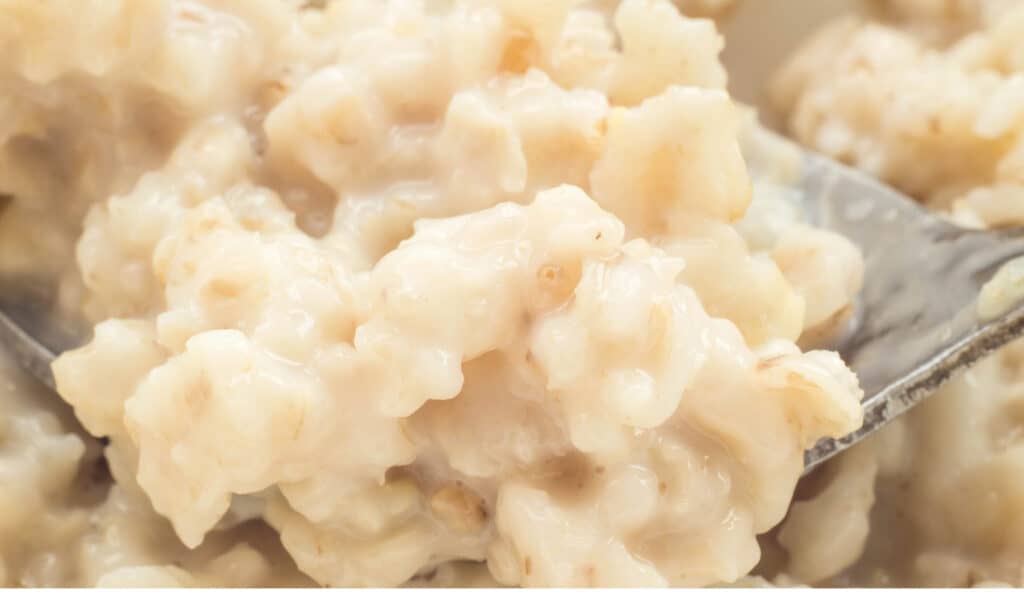
Can Dogs Eat Grits?
If you’re wondering whether dogs can eat grits, the answer is yes, but with some caveats. Grits contain carbohydrates and fiber that can be beneficial for your dog’s digestive health. They also contain essential vitamins and minerals such as iron and thiamin. However, it’s important to remember that each dog has different nutritional needs and digestive capabilities, so not all dogs will benefit from eating grits. It’s important to consider factors like your dog’s age, weight, and any underlying health conditions they may have before sharing grits with them. Also, make sure the grits you’re sharing with your furry friend are plain and don’t contain unhealthy ingredients like butter, cheese, or salt. In the following sections, we’ll explore the nutritional value of grits for dogs in more detail and discuss the potential risks and benefits of feeding grits to your pet.
Nutritional Value of Grits For Dogs
When it comes to the nutritional value of grits for dogs, there are some benefits to consider. Grits are a good source of carbohydrates and fiber, which can help keep your dog’s digestive system working properly. They also contain important vitamins and minerals like iron and thiamin, which can support your furry friend’s overall health. However, it’s important to remember that grits should not be used as a substitute for your dog’s regular meals since they don’t provide all of the nutrients your dog needs to thrive. Plus, grits are calorie-dense and can cause weight gain if overfed. Additionally, dogs have different dietary needs than humans, so it’s best to check with your vet before giving your dog grits. In the next section, we’ll dive deeper into the potential risks and benefits of feeding grits to your pet.
Factors To Consider Before Sharing Grits With Your Dog
Before you share grits with your furry friend, there are some important factors to consider. First and foremost, you’ll want to assess your dog’s nutritional needs and any underlying health conditions they may have. For example, if your dog is overweight or has a history of pancreatitis, grits may not be the best choice for them since they are high in calories and can be hard for some dogs to digest. You’ll also want to make sure the grits are plain and not mixed with unhealthy ingredients like butter, cheese, or salt, which can be harmful to dogs. Additionally, dogs of different ages and sizes have different nutritional requirements, so it’s important to consult with your veterinarian before incorporating grits into your dog’s diet. In the next section, we’ll explore some of the potential risks and benefits of feeding grits to your furry friend.

How Grits Affect Your Dog’s Digestive System
When it comes to your dog’s digestive system, grits can have both positive and negative effects. On the positive side, grits contain fiber that can help regulate your dog’s bowel movements and prevent constipation. However, some dogs may struggle to digest grits properly, leading to gastrointestinal upset like diarrhea or vomiting. This is especially true if your dog has a sensitive stomach or a history of digestive issues. It’s also important to note that grits are high in carbohydrates, which can contribute to weight gain if overfed. So, while grits can be a nutritious addition to your dog’s diet when fed in moderation, it’s important to monitor your dog’s response and talk to your vet if you notice any digestive issues after feeding them grits. In the next section, we’ll discuss some potential benefits and risks of feeding grits to your furry friend.
Benefits Of Feeding Grits To Dogs
While there are some potential benefits to feeding grits to your dog, there are also some risks to keep in mind. One of the biggest risks is the possibility of digestive upset, especially if your dog has a sensitive stomach or a history of digestive issues. Grits can be high in carbohydrates and can cause weight gain if overfed, which can lead to other health problems down the line.
Additionally, if you’re not careful about the ingredients you mix in with the grits, such as butter or salt, your dog could be at risk of consuming something that’s harmful to them. So, while grits can be a healthy and nutritious treat option for your dog, it’s important to be mindful of how much you’re feeding them and what else is going into the mix. In the next section, we’ll go over some tips for safely incorporating grits into your dog’s diet.
Grits As A Source Of Carbohydrates For Dogs
Grits are a good source of carbohydrates for dogs, which can be an important component of their diet. Carbohydrates provide energy for your dog’s body and help support their overall health and wellbeing. However, it’s important to remember that dogs have different nutritional requirements than humans, and their diet should primarily consist of protein and fat. While grits can be a healthy addition to your dog’s diet in moderation, it’s important to avoid overfeeding them or making it a staple of their meals. In the next section, we’ll discuss some potential risks of feeding grits to your furry friend.
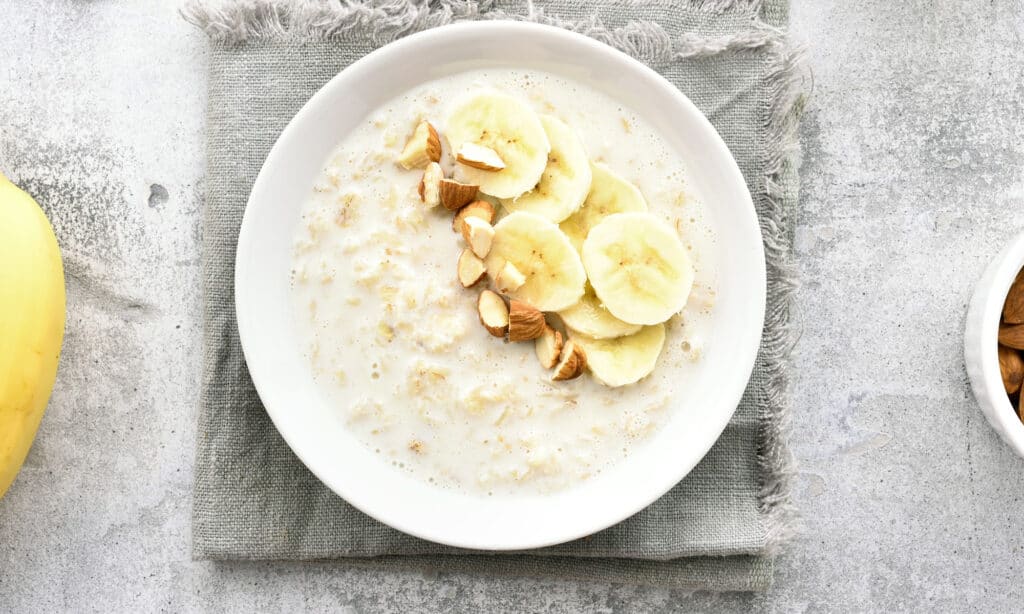
Grits As A Source Of Fiber For Dogs
Grits can also be a good source of fiber for dogs, which is important for maintaining their digestive health. Fiber helps keep your dog’s bowels regular and can prevent issues like constipation and diarrhea. However, as with carbohydrates, it’s important to remember that fiber should not make up the bulk of your dog’s diet. While grits can provide a healthy dose of fiber for your furry friend, they should still primarily consume protein and fat to meet their nutritional needs. Additionally, it’s important to feed grits in moderation to avoid any potential digestive upset. In the next section, we’ll discuss some potential risks of feeding grits to your dog.
Risks Of Feeding Grits To Dogs
While grits can be a healthy addition to your dog’s diet in moderation, there are some risks to keep in mind. One potential issue is that grits are often prepared with unhealthy ingredients like butter, cheese, or salt. These ingredients can be harmful to your dog’s health and can lead to issues like obesity or high blood pressure. Additionally, some dogs may be allergic or intolerant to corn, which is a common ingredient in grits. Signs of an allergic reaction can include vomiting, diarrhea, or skin irritation. Finally, overfeeding your dog grits can lead to digestive upset or even obesity. As with any human food, it’s important to feed grits to your furry friend in moderation and to monitor them for any signs of digestive distress.
How To Safely Share Grits With Your Dog
If you’re considering feeding your dog grits, it’s important to know how to do it safely. First and foremost, make sure the grits are plain and don’t contain any unhealthy ingredients like butter, cheese, or salt. These things can be harmful to your dog’s health and should be avoided. Also, be sure to give grits to your dog in moderation and as part of a balanced diet that includes plenty of protein and fat. While grits can be a nutritious addition to your dog’s diet, they should not make up the majority of their meals.
After feeding your dog grits, keep an eye out for any signs of digestive upset or allergic reaction. If your dog experiences any issues, contact your veterinarian for advice. By following these guidelines, you can safely share a delicious bowl of grits with your furry friend.
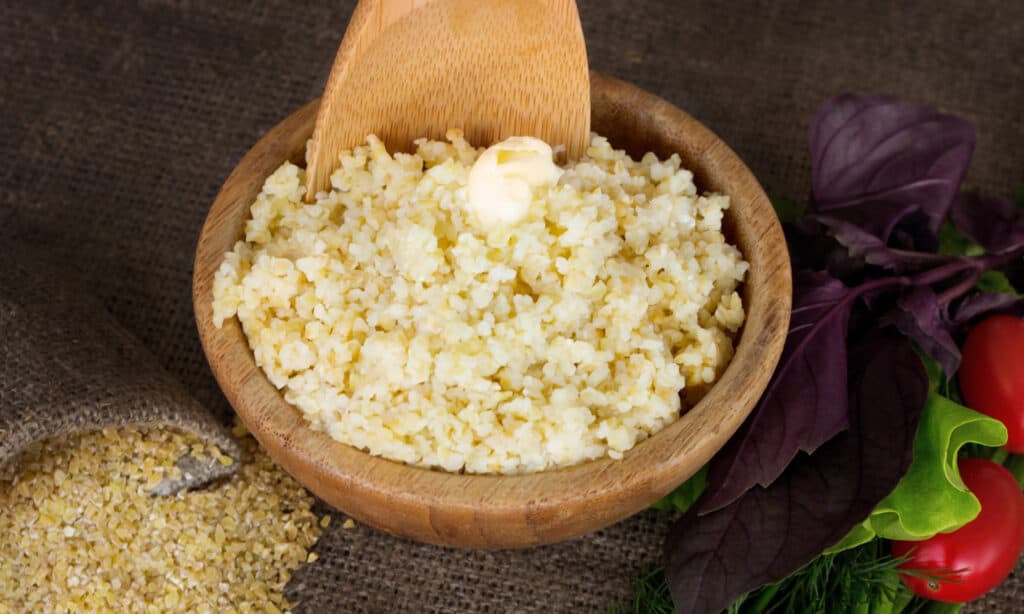
Recommended Serving Sizes For Dogs
When it comes to serving sizes for dogs, it’s important to keep in mind that every dog is unique and may have different nutritional needs. As a general rule, a small dog should be given no more than a quarter cup of cooked grits per day, while a larger dog can have up to half a cup. However, you should always consult with your veterinarian before making any major changes to your dog’s diet or feeding them new foods.
It’s also important to remember that grits should not make up the majority of your dog’s diet. While they can provide a source of carbohydrates and fiber, your dog still needs a balanced diet that includes protein, fat, and other essential nutrients. Be sure to feed your dog a variety of healthy foods and to monitor their weight and overall health regularly. By doing so, you can ensure that your furry friend stays happy, healthy, and well-nourished.
Preparation Guidelines For Sharing Grits With Your Dog
If you decide to share grits with your furry friend, there are a few important preparation guidelines to keep in mind to ensure their safety and well-being.
First, it’s important to prepare plain grits without any added salt, butter, cheese, or other unhealthy ingredients. These additives can be harmful to your dog’s health and can cause digestive issues, such as upset stomach, diarrhea, and vomiting.
It’s also important to let the grits cool down before serving them to your dog. Hot foods can cause burns in your dog’s mouth or throat and can lead to other complications.
When serving grits to your dog, it’s best to start with small amounts and gradually increase the serving size over time. This will allow your dog’s digestive system to adjust to the new food and minimize the risk of any adverse reactions.
Lastly, always supervise your dog while they eat and make sure that they have access to plenty of fresh water to drink. This will help them stay hydrated and prevent any choking hazards.
By following these preparation guidelines, you can safely share grits with your furry friend and provide them with a tasty and nutritious treat.
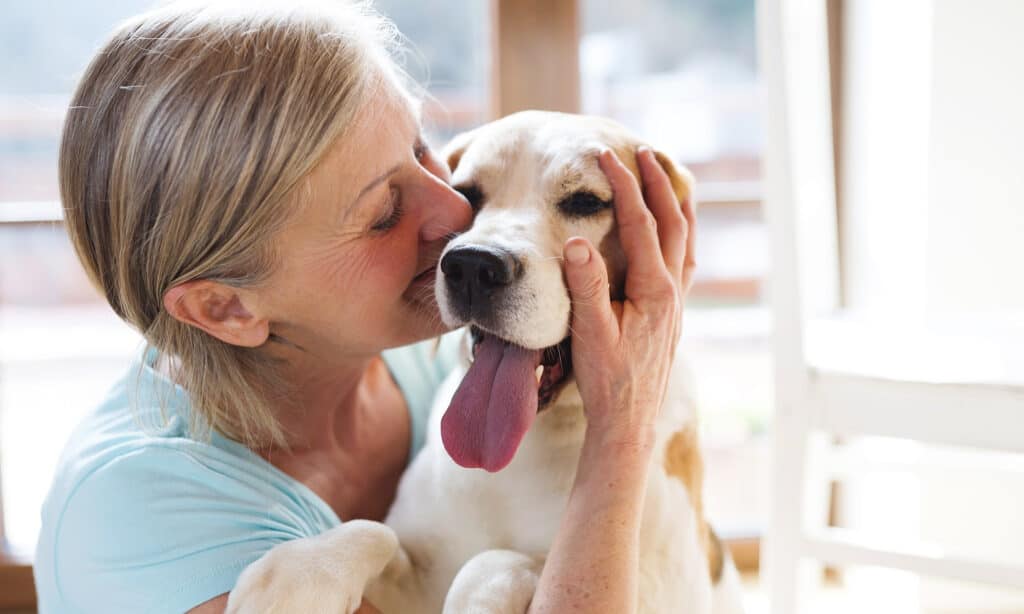
Dog Friendly Alternatives to feeding grits
If you’re looking for something else to feed your furry friend besides grits, don’t worry – there are plenty of dog-friendly options available! Brown rice, oatmeal, quinoa, and sweet potatoes are all healthy and safe alternatives to consider. These options are all packed with nutrients such as carbohydrates, fiber, and essential vitamins and minerals that can benefit your dog’s health. Just make sure to prepare them simply without any added salt, sugar, or unhealthy ingredients. And remember, it’s always a good idea to consult with your veterinarian before introducing any new foods to your dog’s diet.
Conclusion
In conclusion, grits can be a safe and healthy addition to your dog’s diet when given in moderation and prepared correctly. They provide a good source of carbohydrates and fiber, and also contain essential vitamins and minerals. However, it’s important to consider your dog’s individual nutritional needs and any underlying health conditions before sharing grits with them. Always be sure to prepare grits plain without any unhealthy ingredients, and only feed them in small serving sizes. And if you’re looking for other dog-friendly alternatives, there are plenty of nutritious options to consider. As with any new food, it’s always best to consult with your veterinarian first to ensure that it’s safe for your furry friend to eat. With a little bit of care and attention, you can safely share some delicious grits with your pup!
~Sheena
